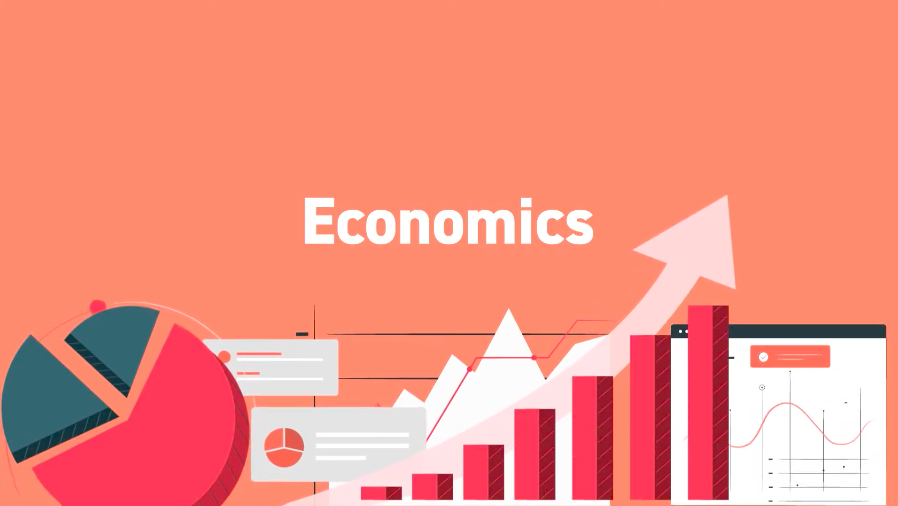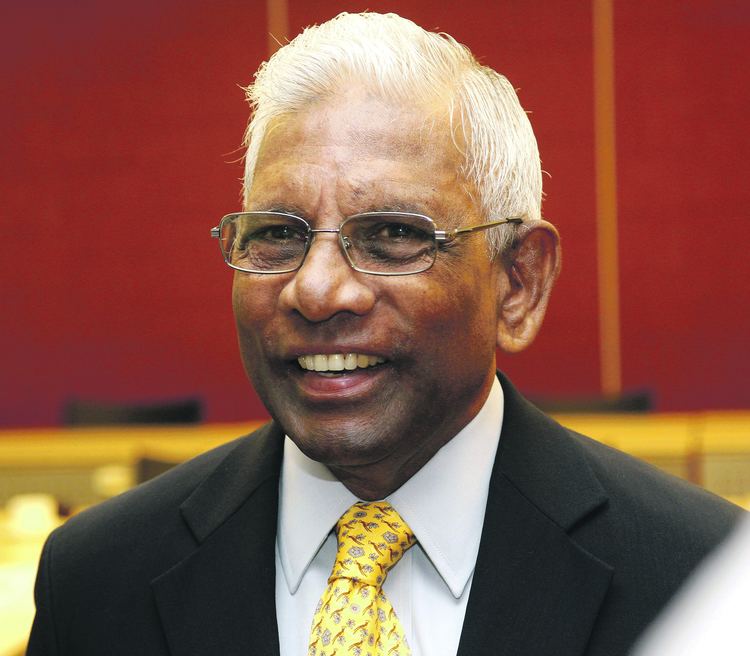Why Economics?
While economics is often associated with financial markets, recessions and inflation, there is in fact much more to the discipline. In Economics, students learn theories of how individuals and firms make optimal decisions. They learn how markets work, when markets fail, and the roles institutions can play to improve markets and societal well-being.
Economics majors graduate with the ability to understand and analyze markets. They can provide governments with insights on how to shape policy. Economics majors also learn statistical tools that enable them to extract key information from data and make forecasts.
The NUS Department of Economics is one of the largest and leading economics departments in Asia. The department's research contributions span all major fields of economics and have international impact. We also contribute to public policy discussion in Singapore through applied research and outreach activities.
We offers three specialisations within our Honours programme: Quantitative Economics, Monetary and Financial Economics, and Applied and Policy Economics


Message from our Director
of Undergraduate Studies
Dr Kelvin Seah is the Director of Undergraduate Studies for the Department of Economics. He obtained his Ph.D. from the University of Otago. He teaches the economics of education, econometrics and introductory microeconomics. His research focuses on the economics of education. He is particularly interested to know how various educational inputs contribute to student achievement.
Curriculum
Single Major [B.Soc.Sci. (Hons)]
EC Major students are required to pass at least 60 units of EC-coded or EC-recognised courses which include the following.
(1) EC1101E Introduction to Economic Analysis
(2) EC2101 Microeconomic Analysis I
(3) EC2102 Macroeconomic Analysis I
(4) EC2104 Quantitative Methods for Economic Analysis (see Note 1)
(5) EC2303 Foundations for Econometrics (see Note 2)
(6) EC3101 Microeconomic Analysis II
(7) EC3102 Macroeconomic Analysis II
(8) EC3303 Econometrics I (see Note 3)
(9) A minimum of 16 units of EC courses at Level-3000 (including EC3101, EC3102, and EC3303)
(10)A minimum of 20 units of EC courses at level-4000 or higher
Important Notes:
Note 1: Students who have passed any MA course that is not MA1301 or MA1311 or MA1312 or MA1421 or any 2 units MA courses are allowed to read any level-2000 or level-3000 EC elective or EC-recognised course in lieu of EC2104. Likewise, not more than one level-1000 MA course can be used together with EC2104 for fulfilling major requirements.
Note 2: Students who have passed any ST course or MA2216 or DSC1007 or DSC1007X are allowed to read any level-2000 or level-3000 EC elective or EC-recognised course in lieu of EC2303. Please note that ST1131 is a preclusion to EC2303. Therefore, ST1131 and EC2303 cannot be counted as two 4-unit courses for the fulfilment of the Economics major requirements.
Note 3: ST3131 is a preclusion to EC3303. Students who have passed ST3131 need not read EC3303. ST3131 is an EC-recognised course that can be counted towards the requirements for the Economics major requirements.
Note 4: In order to obtain Honours (Highest Distinction), students are required to achieve a GPA of 4.5 or higher AND a Pass grade in the Economics Honours Thesis (EC4401). To qualify for the Economics Honours Thesis, students are required to complete 110 units including 40 units of EC major requirements with a minimum SJAP of 4.0 and GPA of 3.5.
Note 5: Students who are not aiming to graduate with Honours (Highest Distinction) will read a minimum of 20 units of EC courses at level-4000 or higher.
Note 6: Students may apply to read a level-4000 Independent Studies course (ISC) if they meet the pre-requisites of the course - Completed 100 units including 40 units of EC major requirements with a minimum GPA of 3.2. The level-4000 ISM counts towards requirement (10) above and precludes the Economics Honours Thesis (EC4401).
Note 7: Students may read a maximum of 8 units of EC5000R courses to count towards requirement (10) above.
Note 8: All level-4000 courses carry a general pre-requisite of having completed 80 units, including 28 units in the Major, with a minimum GPA of 3.2 OR being on the Honours track (some level-4000 courses may have different pre-requisites).
Note 9: Students may read a maximum of 8 units of EC-recognised courses to count towards the Economics Major requirements.
LIST OF EC-RECOGNISED COURSES FOR THE ECONOMICS SINGLE MAJOR AND SECOND MAJOR PROGRAMMES
Students may read and count a maximum of 8 units of EC-recognised courses towards the Economics Single Major or Economics Second Major programme. These courses are not applicable to students pursuing the Minor in Economics programme.
ACC1701X Accounting for Decision Makers
BSE3701 Macroeconomic Principles in the Global Economy
BSP1703 Managerial Economics
BSS4003A Special Sem in Business: Innovation and Productivity or BSN4811 Innovation and Productivity or BSN4811A Innovation and Productivity (with Econometrics) – 5 units
BT1101 Introduction to Business Analytics
MA1101R Linear Algebra I
MA1102R Calculus / MA1521 Calculus for Computing
MA1505 Mathematics I
MA1506 Mathematics II
MA1507 Advanced Calculus
MA1508 Linear Algebra with Applications
MA1508E Linear Algebra for Engineering
MA1511 Engineering Calculus (2 units)*
MA1512 Differential Equations for Engineering (2 units)*
MA1513 Linear Algebra with Differential Equations (2 units)*
MA2108 Mathematical Analysis I
MA3110 Mathematical Analysis II
ST1131 Introduction to Statistics
ST2131 / MA2216 Probability
ST3131 Regression Analysis
PP5141 The Economic and Evolutionary Foundations of the Singapore Story
RE1704 Principles of Real Estate Economics
RE2705 Urban Economics
*Students are required to complete at least two of the three 2 units courses in place of one level-2000 elective (4 units). Students will be able to count only a maximum of 4 units towards the major requirements even though they have completed all three 2 units courses.
Specialisations in B.Soc.Sci (Hons)
The Department of Economics offers three specialisations with the Economics Honours programme.
QUANTITATIVE ECONOMICS
This specialisation equips students with the skills and knowledge in economic theory and quantitative methods. Students who graduate with this specialisation will be well placed for graduate studies in economics and for careers requiring data analysis and rigorous quantitative skills.
Students are required to complete 20 units of courses comprising:
- Any one of the following EC3000 courses:
- EC3312 Game Theory and Applications
- EC3314 Mathematical Economics
- EC3304 Econometrics III
- EC4301 Microeconomic Analysis III
- EC4302 Macroeconomic Analysis III
- Any two of the following EC4000 courses:
- EC4303 Econometrics III
- EC4304 Economic and Financial Forecasting
- EC4308 Machine Learning and Economic Forecasting
- EC4311 Mathematical Economic Analysis
- EC4313 Search Theory and Applications
- EC5104 Mathematical Economics
MONETARY AND FINANCIAL ECONOMICS
This specialisation equips students with the skills and knowledge in the fields of financial economics, monetary economics, and macroeconomics. Students who graduate with this specialisation will be well placed for careers in the financial sector, including banks, business and financial advisories, capital market services, insurance, and central banks.
Students are required to complete 20 units of courses comprising:
- EC3332 Money and Banking I
- EC3333 Financial Economics I
- EC3343 International Finance I
- Any two of the following EC4000 courses:
- EC4302 Macroeconomic Analysis III
- EC4307 Issues in Macroeconomics
- EC4331 Monetary Economics and Policy
- EC4332 Money and Banking II
- EC4333 Financial Economics II
- EC4334 Financial Micromarket Structure
- EC4343 International Finance II
APPLIED AND POLICY ECONOMICS
This specialisation equips students with the skills and knowledge essential for policymakers and applied economists. Students who graduate with this specialisation will be especially well placed for careers in the civil service, think tanks, and non-profit organizations.
Students are required to complete 20 units of courses comprising:
- Any one of the following EC3000 courses:
- EC3351 Public Finance
- EC3342 International Trade I
- EC3361 Labour Economics I
- EC3381 Urban Economics
- EC3396 Economic Analysis of Law I
- EC4305 Applied Econometrics OR EC5326 Policy Impact Evaluation Methods
- Any three of the following EC4000 courses:
- EC4324 Economics of Competition Policy
- EC4325 Economics of Digital Platforms
- EC4351 Public Economics
- EC4352 Singapore Economy: Practice and Policy
- EC4353 Health Economics
- EC4354 Economics of Education
- EC4355 Economics of Ageing
- EC4342 International Trade II
- EC4361 Labour Economics II
- EC4362 Immigration Economics
- EC4371 Development Economics
- EC4372 Technology and Innovation
- EC4382 Transport Economics
- EC4383 Environmental Economics and Policy
- EC4387 Housing Economics
- EC4391 Economics of Entrepreneurship
- EC4398 Economics of Inequality
- EC4399 Behavioural Public Policy
Second Major
Students who would like to graduate with a Second Major in Economics are required to pass at least 40 units of EC-coded or EC-recognised courses which include the following:
(1) EC1101E Introduction to Economic Analysis (see Note 1)
(2) EC2101 Microeconomic Analysis I
(3) EC2102 Macroeconomic Analysis I (see Note 2)
(4) EC2104 Quantitative Methods for Economic Analysis (see Note 3)
(5) EC2303 Foundations for Econometrics (see Note 4)
(6) EC3101 Microeconomic Analysis II
(7) EC3102 Macroeconomic Analysis II
(8) EC3303 Econometrics I (see Note 5)
(9) A minimum of 16 units of EC courses at level-3000 or higher (including EC3101, EC3102 and EC3303)
(10) A maximum of 8 units of EC-recognised courses (double counting) for Major programme (see Note 6)
Important Notes:
Note 1: BSP1703 and RE1704 preclude EC1101E. Students who have passed BSP1703 or RE1704 need not read EC1101E. BSP1703 or RE1704 is an EC-recognised course that can be counted towards the requirements of the Second Major in Economics programme.
Note 2: BSE3701 precludes EC2102. Students who have passed BSE3701 need not read EC2102. BSE3701 is an EC-recognised course that can be counted towards the requirements for the Second Major in Economics programme.
Note 3: Any MA course that is not MA1301/MA1301FC/MA1301X or MA1311 or MA1312 or MA1421 or any 2 units MA courses is a preclusion to EC2104. Students who have passed any MA course that is not MA1301/MA1301FC/MA1301X or MA1311 or MA1312 or MA1421 need not read EC2104. Students who have passed any MA course that is not MA1301/MA1301FC/MA1301X or MA1311 or MA1312 or MA1421 are required to read any level-2000 or level-3000 EC elective or EC-recognised course to meet the minimum of 40 units of EC-coded or EC-recognised courses for the Second Major in Economics programme. Students who have passed EC2104 are not allowed to count more than one level-1000 MA course together with EC2104 towards the Economics major requirements.
Note 4: All ST courses, DSC1007/DSC1007X, MA2216 are preclusion courses for EC2303. Students who have passed any ST course or DSC1007/DSC1007X or MA2216 need not read EC2303. Students who have passed any ST course or DSC1007/DSC1007X or MA2216 are required to read any level-2000 or level-3000 EC-coded elective or EC-recognised course to meet the minimum of 40 units of EC-coded or EC-recognised courses for the Second Major in Economics programme.
Note 5: ST3131 is a preclusion to EC3303. Students who have passed ST3131 need not read EC3303. ST3131 is an EC-recognised course that can be counted towards the requirements for the Second Major in Economics programme.
Note 6: Business students (except Business students who specialised in Business Economics) and Business Analytics students with Second Major in Economics should contact their Home Faculty to enquire the maximum units of double counting applicable to them.
Note 7: Business students who specialised in Business Economics are not allowed to declare the Second Major in Economics programme.
EC-RECOGNISED COURSES FOR THE ECONOMICS SECOND MAJOR PROGRAMME
Students may read and count a maximum of 8 units of EC-recognised courses towards the Economics Second Major programme. These courses are not applicable to students pursuing the Minor in Economics programme.
ACC1701/ACC1701X Accounting for Decision Makers
BSE3701 Macroeconomic Principles in the Global Economy
BSP1703/BSP1703X Managerial Economics
BSS4003A Special Sem in Business: Innovation and Productivity or BSN4811 Innovation and Productivity or BSN4811A Innovation and Productivity (with Econometrics) – 5 units
BT1101 Introduction to Business Analytics
MA1101R Linear Algebra I
MA1102R Calculus / MA1521 Calculus for Computing
MA1505 Mathematics I
MA1506 Mathematics II
MA1507 Advanced Calculus
MA1508 Linear Algebra with Applications
MA1508E Linear Algebra for Engineering
MA1511 Engineering Calculus (2 units)*
MA1512 Differential Equations for Engineering (2 units)*
MA1513 Linear Algebra with Differential Equations (2 units)*
MA2108 Mathematical Analysis I
MA3110 Mathematical Analysis II
ST1131 Introduction to Statistics
ST2131 / MA2216 Probability
ST3131 Regression Analysis
PP5141 The Economic and Evolutionary Foundations of the Singapore Story
RE1704 Principles of Real Estate Economics
RE2705 Urban Economics
*Students are required to complete at least two of the three 2 units courses in place of one level-2000 elective (4 units). Students will be able to count only a maximum of 4 units towards the major requirements even though they have completed all three 2 units courses.
Minor
Students who would like to graduate with a Minor in Economics are required to pass at least 20 units of EC-coded or EC-recognised courses, which include the following:
(1) EC1101E Introduction to Economic Analysis (See Note 1)
(2) EC2101 Microeconomic Analysis I and/or EC2102 Macroeconomic Analysis I (See Note 2)
(3) A maximum of 4 units of EC-recognised courses for minor programme.
Important Notes:
Note 1: BSP1703 and RE1704 preclude EC1101E. Students who have passed BSP1703 or RE1704 need not read EC1101E. Please note that BSP1703 is not a replacement for EC1101E. Students who have passed BSP1703 are required to read any level-2000 or level-3000 EC elective or EC-recognised course to meet the minimum of 20 units of EC-coded or EC-recognised courses for the Minor in Economics programme. The units for BSP1703 is not counted towards the requirements of the Minor in Economics programme.
Students who have passed RE1704 need not read EC1101E. RE1704 is an EC-recognised course that can be counted towards the requirements of the Minor in Economics programme.
Note 2: BSE3701 precludes EC2102. Students who have passed BSE3701 are required to read any level-2000 or level-3000 EC elective or EC-recognised course to meet the minimum of 20 units of EC-coded or EC-recognised courses for the Minor in Economics programme. The units for BSE3701 are not counted towards the requirements of the Minor in Economics programme.
Note 3: EC-prefixed course exemptions (with 'EXE' grade) cannot be counted towards the Minor in Economics requirements.
Note 4: The Minor in Economics programme is available to CHS and non-CHS students. Business students who specialised in Business Economics are not allowed to declare the Minor in Economics programme.
EC-recognised courses for Minor in Economics Programme
FIN2704/FIN2704X Finance
RE1704 Principles of Real Estate Economics
RE2705 Urban Economics
MA1521 Calculus for Computing / MA1102R Calculus
ST3131 Regression Analysis
Job Ready
Economics graduates are equipped with analytical skills and statistical proficiencies that make them well-suited to a wide range of roles and industries. In government, our graduates have been employed as economists, planners and policy managers in various ministries and statutory boards, such as the Ministry of Trade and Industry, the Monetary Authority of Singapore, Enterprise Singapore and the Central Provident Fund Board.
Our graduates have placed in the banking and finance sectors in roles such as management associates, risk analysts and financial analysts. They have also placed in technology firms in roles such as business development strategists, marketing managers and data analysts. Our graduates are also employed in many other sectors, including consulting, education, health and retail.
Also, many of our graduates have pursued postgraduate studies locally and abroad, both in economics and in other fields such as business analytics, psychology, and public policy. Whatever our students may choose to pursue after graduation, we see our role as the same: to encourage their intellectual development by exposing them to the analytical frameworks and insights of economics.
Why CHS?
The College of Humanities and Sciences (CHS) is the enhanced undergraduate experience for students of the Faculty of Arts & Social Sciences (FASS) and the Faculty of Science (FOS) at the National University of Singapore.
Scale of Impact
Taps and builds on the research expertise of two of the largest and most established faculties in Singapore.
Deliberate Curriculum Curation
A distinct interdisciplinary approach that emphasises the ability to draw connections, discover links and connect insights across disciplines.
Unparalleled Flexibility
Offers greater choice and unparalleled flexibility to pursue breadth and depth from more than 1,000 courses per academic year.
Testimonials

Gregory Tham
Economics
Why study Economics?
I think there are two ways to look at Economics. One is to think of Economics in terms of its theories and another way is to view Economics as a lens to study different social issues. My interest in Economics mainly comes from the latter. In Economics, you pick up important tools, such as econometrics, to find out the how and why behind social phenomena. Too often, public opinions are being swayed by untested rhetoric while Economics gives us a rigorous way to test existing hypotheses. I think this is especially important in the current era where we have much more data and better technology. Having a good foundation in Economics gives us the tools to make sense of data and to better utilise it to understand the complex world.
What do you intend to do after graduation?
I believe in using what I have learnt to reach out to marginalised communities, and I am interested in a job in the social service sector or in international development. Currently, I am applying for research and policy positions organisations such as the MSF and World Bank.
Goh Chok Tong
Emeritus Senior Minister
Distinguished Arts and Social Sciences Award 2018
Economics '64
Mr. Goh Chok Tong is a Singaporean politician. A member of the People’s Action Party (PAP), he became Singapore’s second Prime Minister on 28 November 1990, succeeding Lee Kuan Yew, and served in the role until 12 August 2004. He subsequently served as Senior Minister until May 2011, and as Chairman of the Monetary Authority Of Singapore (MAS). He continues to serve as an MP representing the Marine Parade Group Representation Constituency and holds the honorary title of “Emeritus Senior Minister”.


Suppiah Dhanabalan
Former Chairman of Temasek Holdings
Distinguished Arts and Social Sciences Award 2017
Economics '60
Mr Dhanabalan was awarded with the nation’s highest honor, the Order of Temasek (First Class). He was the pioneer that established Economic Development Board (EDB) and later the Development Bank of Singapore (DBS).
“There is a difference between being happy and living a meaningful life. You have to ask yourself what it is that you find meaningful. Your generation is a lot more aware about what is happening in the world, and all the various options, problems, challenges and attractions. You have a lot more information. Your decisions are tougher because you are better informed than I ever was. But start with what you want, be it happiness or meaning.”
Tan Seng Chai
Chief Corporate and People Officer, CapitaLand Group
"It's a new normal we live in, and there are critical attributes the next-generation workforce must possess in order to thrive, including the willingness to learn, ability to innovate, and high adaptability. CapitaLand recognises this and proactively collaborates on opportunities that encourage the development of these traits. That is why we're supportive of the curriculum at NUS College of Humanities and Sciences. Its focus on interdisciplinary education coupled with experiential and problem-based learning will allow future-ready CHS graduates to handle a variety of workplace scenarios across different disciplines better, and put them in good stead to ride the waves of the future of work."

The Faculty of Arts and Social Sciences, National University of Singapore (NUS) is committed to environmental sustainability.
This e-brochure is part of our sustained effort to reduce waste and foster a culture of care for the environment among the NUS and broader community.

